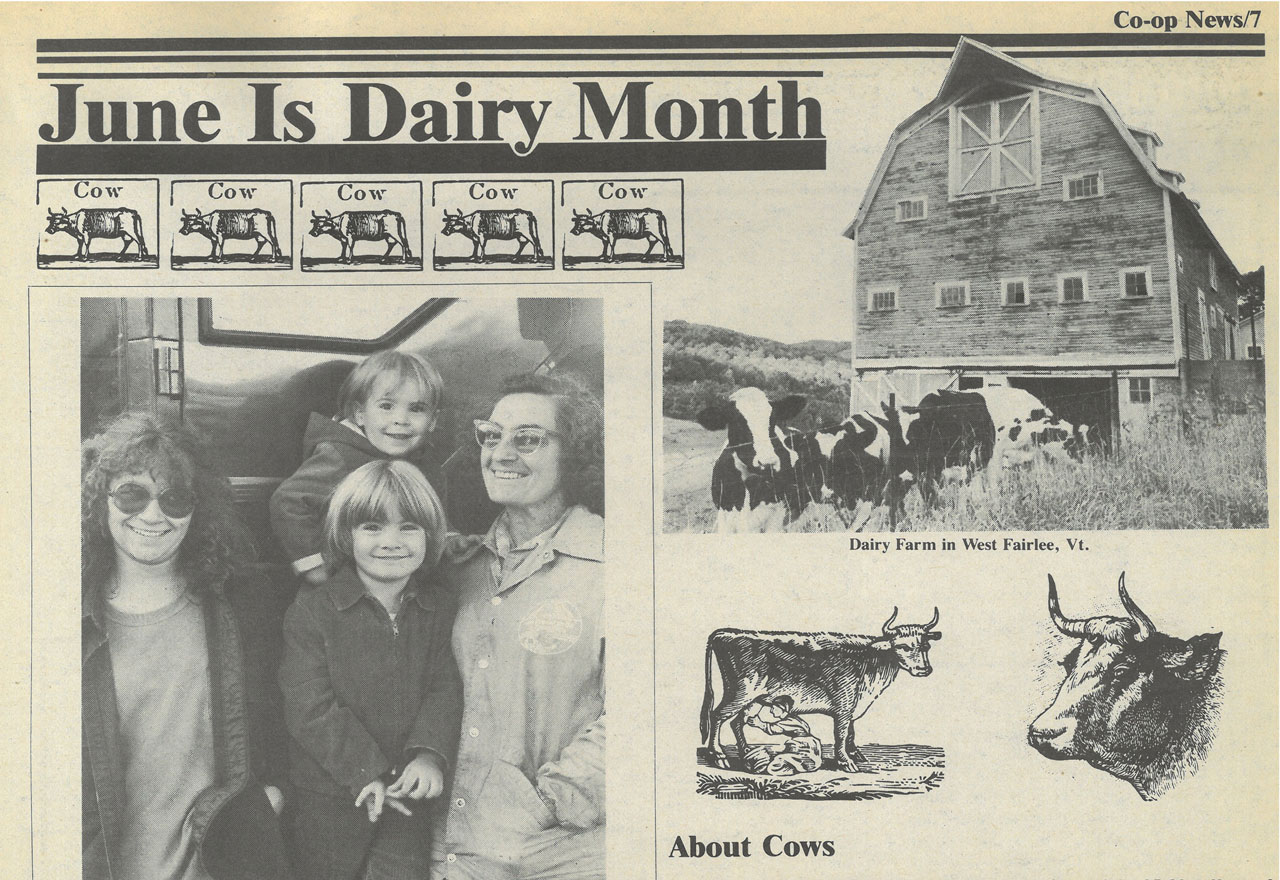86-year-old Hanover Co-op stands with dairy farmers
Hanover Co-op Food Stores source $17 million annually out of the New Hampshire and Vermont local foodsheds. A significant portion of those sales comes from organic dairy.
Cornucopia recently caught up with Allan Reetz, Hanover Co-op’s director of public and government affairs, to discuss the role of dairy in the co-op’s history and how the local icon continues to support the farmers “who are carrying so much on their shoulders.”
What brands of certified organic dairy products do you sell?
We have been a longtime outlet for Thistle Hill Farm, Strafford Organic Creamery, and Butterworks Farm. Those are three incredible stories. (All are top-rated dairies on Cornucopia’s dairy scorecard.) It’s one thing to say, I’m going to get you on our shelf; it’s another thing to try to process their payments on farm-friendly terms. Being extra prompt with our payments helps local producers grow.
What are the biggest barriers to sourcing organic dairy?
Distribution. It’s among my biggest fears. Consolidation is gobbling up small local and regional distributors. If a farmer launches into organic yogurt and cheese, because they need to diversify to make ends meet, they still need a truck to pick up what’s left of their milk. But if all of a sudden they’re hearing, I’m sorry, you aren’t worth it anymore, I can’t swing by, that’s a huge worry for our $88 million co-op. And it’s happening.
What values drive purchasing decisions for dairy products?
We were founded in 1936, during the Great Depression, with 17 local families just trying to buy better quality food at fair prices. In our founding doc, it says, ‘it shall be the policy of this consumer club to buy from local merchants as much as is practicable.’ The founders wanted to allow their members to vote with their dollars, but provide information to help them be better educated. As our co-op grew, that’s been its centering point. So while I’ve got Danone yogurt on the shelf, we also have kefir in a glass jar with a dollar deposit that comes from a little farm in New Hampshire.
Danone (owner of Horizon Organic) abruptly ended contracts with 89 Northeast organic dairy farm families. How has the co-op responded?
Early on, an organic farmer asked if we were planning on pulling products or boycotting, but we care about these farmers who still have a contract (the farms were given 12 months’ notice). When the issue hit, we joined the New England Organic Dairy Task Force. It is our obligation. Co-ops are all about education, communications, and training. And not just for their consumers, but also for employees and for legislators. Access to safe and healthful food, in good times and in bad, better be an issue of every consumer, every retailer, every distributor. To think otherwise is beyond short-sighted.
How do you work to change policy?
My job is to understand the issue beyond the headline so I can be an advocate for lasting change. And it requires long-term involvement. I did the 2018 Farm Bill fly-ins [to meet lawmakers in DC], but I also knew once the document was signed, we’d still be fighting. And you’re fighting until the next one is signed, and then you’re fighting on that one to make sure appropriations come through.
Your Hanover career started in communications. What story did you tell?
Dairy is a vibrant part of our economy. It gets a bad rap. But these organic farmers are doing it for us. We’ve got to fight back with them.


